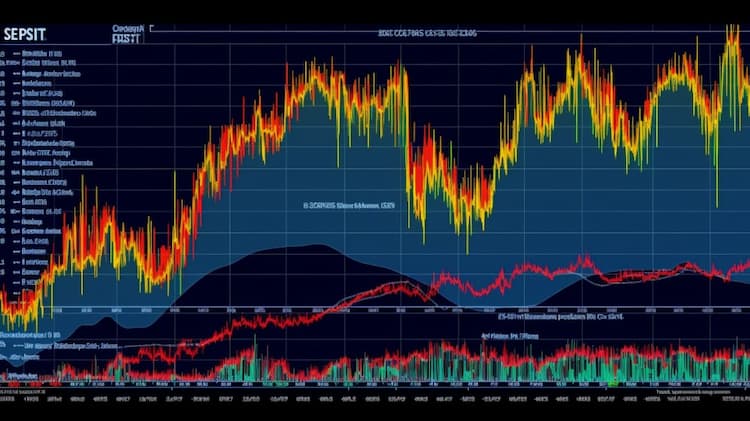
VNQ Vs SCHH: Sectors and Top Holdings
Exchange-Traded Funds (ETFs) have become an essential part of modern investment portfolios, providing access to a diverse range of asset classes. In this article, we will conduct a thorough comparison between two prominent real estate ETFs: VNQ (Vanguard Real Estate ETF) and SCHH (Schwab U.S. REIT ETF). We will delve into various aspects of these ETFs, including their tickers, full names, issuers, sectors, top holdings, capitalization, investment strategies, tracking methods, and exposure.
VNQ Vs SCHH: Overview
VNQ and SCHH are both real estate ETFs, but they have distinct differences in terms of investment approach. VNQ aims to replicate the performance of the MSCI US Investable Market Real Estate 25/50 Index, which includes a broad spectrum of real estate companies. On the other hand, SCHH tracks the performance of the Dow Jones U.S. Select REIT Index, focusing on a narrower selection of real estate investment trusts. These differences lay the foundation for further exploration of their characteristics.
VNQ Vs SCHH: Sectors and Top Holdings
The sectors covered by VNQ and SCHH vary due to their respective index methodologies. VNQ provides exposure to various real estate sectors, including retail, residential, office, and healthcare. Its top holdings typically consist of well-established real estate investment trusts such as American Tower Corp and Simon Property Group. In contrast, SCHH concentrates on the office, residential, and industrial sectors, with top holdings like Prologis Inc and Equinix Inc. Investors looking for specific sector exposure can benefit from understanding these distinctions.
 VNQ overlap VNQ VS SCHH
VNQ overlap VNQ VS SCHH
VNQ Vs SCHH: Capitalization and Investment Strategy
Capitalization and investment strategy can significantly influence an ETF's risk and return profile. VNQ boasts a substantial asset under management (AUM) due to its broader scope, reflecting its popularity among investors seeking diversified real estate exposure. SCHH's strategy emphasizes real estate companies with a stronger focus on office and residential properties. The variance in capitalization and strategy can impact performance during different market conditions, making it crucial for investors to align their preferences with the ETF's characteristics.
VNQ Vs SCHH: Tracking Methods and Exposure
Understanding how an ETF tracks its underlying index and provides exposure is crucial for informed decision-making. VNQ tracks its index using a replication strategy, aiming to match the index's performance by holding a representative selection of securities. On the other hand, SCHH employs a sampling strategy, which means it holds a subset of the index's securities to closely mimic its performance. This difference in tracking methods can lead to variations in performance and tracking error. Furthermore, investors need to consider the implications of exposure to different real estate sectors and companies when evaluating these ETFs.
Conclusion
VNQ and SCHH offer investors distinct ways to gain exposure to the real estate sector through the convenience of an ETF. While VNQ provides a more comprehensive coverage of the real estate market, SCHH focuses on specific sectors, offering a targeted approach. For investors looking to gain deeper insights into holdings, correlations, overlaps, and other crucial information, ETF Insider is an invaluable tool. With its user-friendly app, ETF Insider empowers investors with comprehensive details on these financial instruments and more.
Disclaimer: This article is intended for informational purposes only and does not provide any investment advisory services. It's essential to conduct thorough research and consult with financial professionals before making any investment decisions.
Sources:
Vanguard Real Estate ETF (VNQ) https://investor.vanguard.com/investment-products/etfs/profile/vnq
Schwab U.S. REIT ETF™ (SCHH) Overview. https://www.schwabassetmanagement.com/products/schh
VNQ quote and analysis
Discover the top holdings, correlations, and overlaps of ETFs using our visualization tool.
Our app allows you to build and track your portfolio.
To learn more about the VNQ Vanguard Real Estate ETF, access our dedicated page now.
FAQ
Why is VNQ better than SCHH?
VNQ may be considered better than SCHH for some investors due to its specific focus, offering diversification.
Does SCHH beat VNQ?
SCHH's performance relative to VNQ will vary over time, depending on market conditions.
Should I invest in VNQ or SCHH?
The choice between VNQ and SCHH should align with your investment goals, risk tolerance, and desired exposure.
Are VNQ and SCHH good investments?
Both VNQ and SCHH can be suitable investments depending on individual investment strategies, goals, and risk profiles.
What is the correlation between VNQ and SCHH?
The correlation between VNQ and SCHH can vary over time, reflecting differences in performance.







